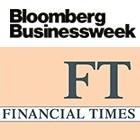NewsBites
Several influential media featured the accomplishments of the School of Management and the expertise of its faculty over the past year.
Below is a summary of some of the school's citations in prominent national and regional media. These media placements enhance the school's national reputation and help to brand it as one of the nation's top business schools.

U.S. News and World Report
U.S. News and World Report again ranked the School of Management among the nation’s best MBA programs for 2017. The school rose eight spots from last year to No. 73, out of 471 MBA programs surveyed. Among public B-schools, the school was ranked No. 38. (See story in Startups.)

Fortune
An article in Fortune magazine by Charles Lindsey, associate professor of marketing, looked at how United Airlines hurt its reputation by mistreating customers and making matters worse with its responses to public criticism. “United needs to figure out what went wrong … and how it can address such disasters from reoccurring in the future. While the airline has in recent years focused its energy and resources on improving customer service … none of these improvements will make much of a difference if it keeps treating its customers so poorly. The company must fundamentally change its approach if it hopes to retain their business going forward,” he wrote.

Slate
An article on Slate about the role of group chemistry in athletic team performance featured research by Kate Bezrukova, associate professor of organization and human resources, who has worked with Major League Baseball and the National Basketball Association. Teams must strike an optimal balance between diversity and homogeneity, and teams that fall too far on either side of the golden mean win fewer games, she said.

Vanity Fair, Bloomberg, CNBC, Marketwatch and Fast Company
Vanity Fair, Bloomberg, CNBC, Marketwatch, Fast Company and other publications cited research by Cristian Tiu, associate professor and chair of the Finance Department, that found hedge fund investors allocate more money to funds with names that convey “gravitas” or power. “The hedge fund industry’s clients are supposed to be, by contrast to individuals, sophisticated, and are mostly institutions, in theory more immune to behavioral decision-making biases,” Tiu and his co-author, Juha Joenväärä, wrote in the study. The Bloomberg writer called it the “best finance abstract paper I’ve read in a while.”

Bloomberg and Financial Times
Tiu also was interviewed for an article on Bloomberg that reported on a study that showed that colleges need to consider yardsticks other than size when comparing their endowment performance. “A one-size-fits-all approach does not work,” he said. “Instead, good organic benchmarks should be university-specific.” An article also appeared in Financial Times.

Yahoo! Finance
Research co-authored by Michael Dambra, assistant professor of accounting and law, was cited in a Yahoo! Finance article on SNAP, Snapchat’s IPO, which went public in March. The research concluded that pre-IPO communications appeared to result in analyst behavior that benefitted preferred clients and the investment bank at the expense of other investors.

CBS News
Dambra also was quoted in an article on CBS News that reported on his research that found that a pension reform act passed by Congress in 2012 isn’t stimulating the investment and job creation promised by its proponents. “Of the estimated $145 billion in pension funding relief provided by MAP-21, managers spent nearly $40 billion on stock repurchases and retained more than $52 billion on their balance sheets,” he said.

Marketwatch
A column on MarketWatch about the best advice retirees have for people who are about to retire quoted Lewis Mandell, professor emeritus of finance. Your biggest asset in retirement could be a paid-off, appropriately remodeled home that allows you to age in place, he said.

Buffalo News
A front-page spread in the Buffalo News Business section featured panelists from a health care panel hosted by the School of Management and facilitated by Larry Zielinski, executive in residence for health care management. The inaugural event in the school’s Business and Society series explored what’s working, what isn’t, the challenges of moving forward and prospects for a single payer health system similar to Canada’s. (See story.)
Brian Wolfe, assistant professor of finance, was quoted in a Buffalo News article about how U.S. Magistrate Judge Hugh B. Scott, in a local money laundering case, ruled that bitcoin is similar to a commodity, something akin to a collectible, not a form of currency. Wolfe says cryptocurrencies like bitcoin and what they represent – a rapid, decentralized, low-cost digital approach to transactions, protected by encryption – are here to stay.
Feng Gu, associate professor and chair of the Department of Accounting and Law, was featured in a Buffalo News article about a book he co-authored, The End of Accounting and the Path Forward for Investors and Managers, which suggests the information companies share doesn’t tell investors what they truly want – and need – to know. “We’re not calling for the complete stop of the current [financial] reporting system,” he said. “We’re basically interested in getting people to think about important ways to improve the system and provide proposals.”